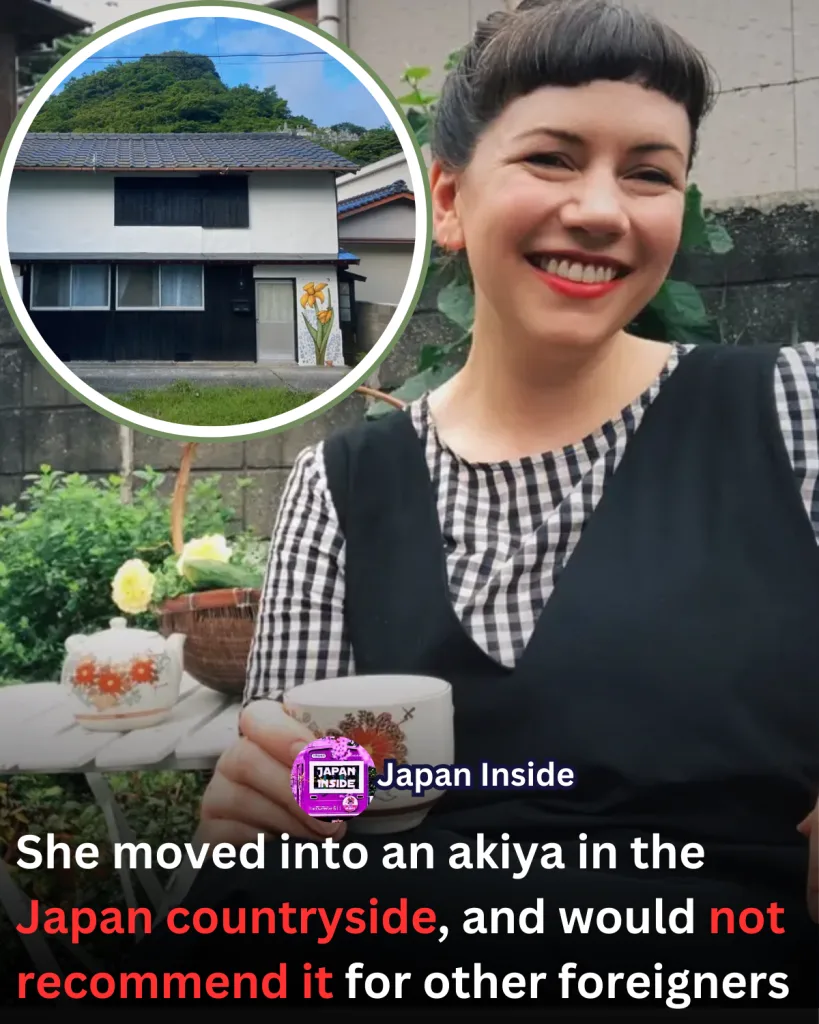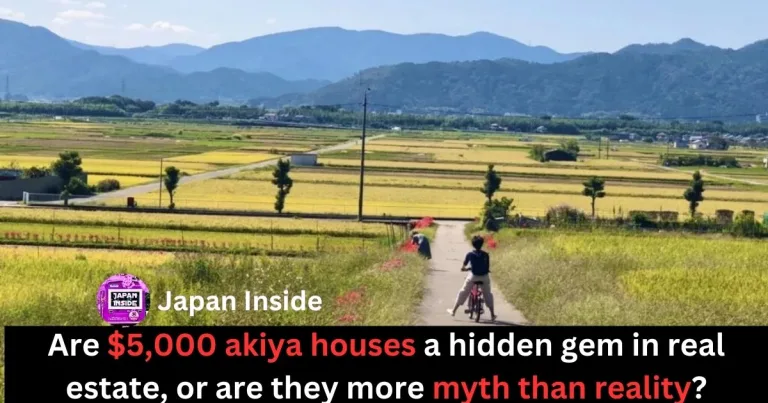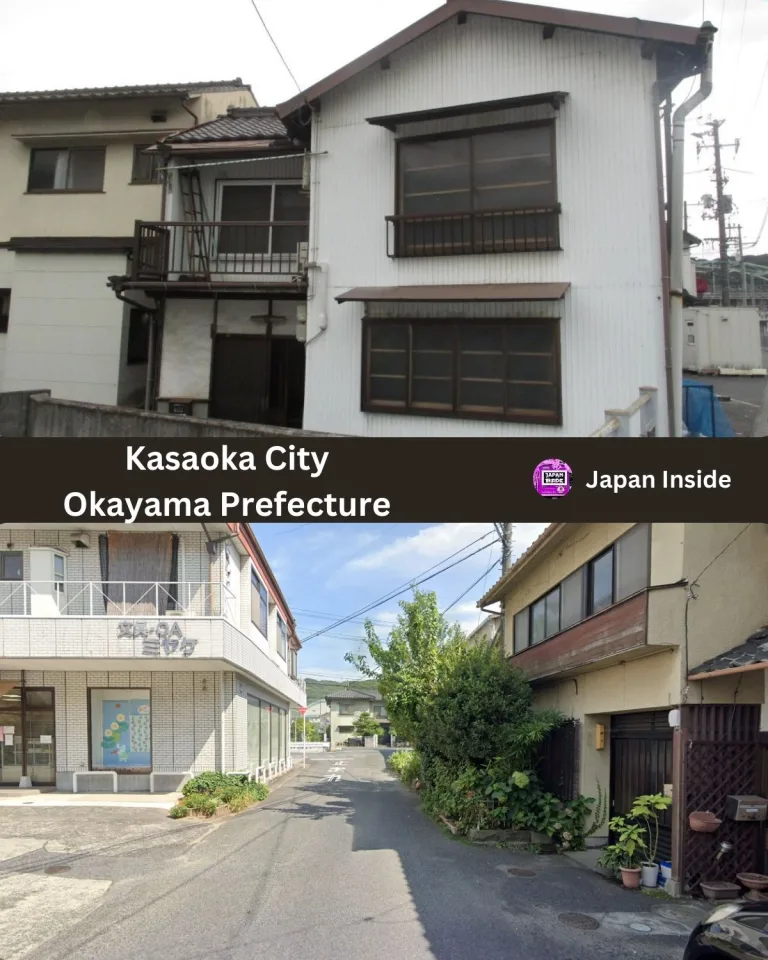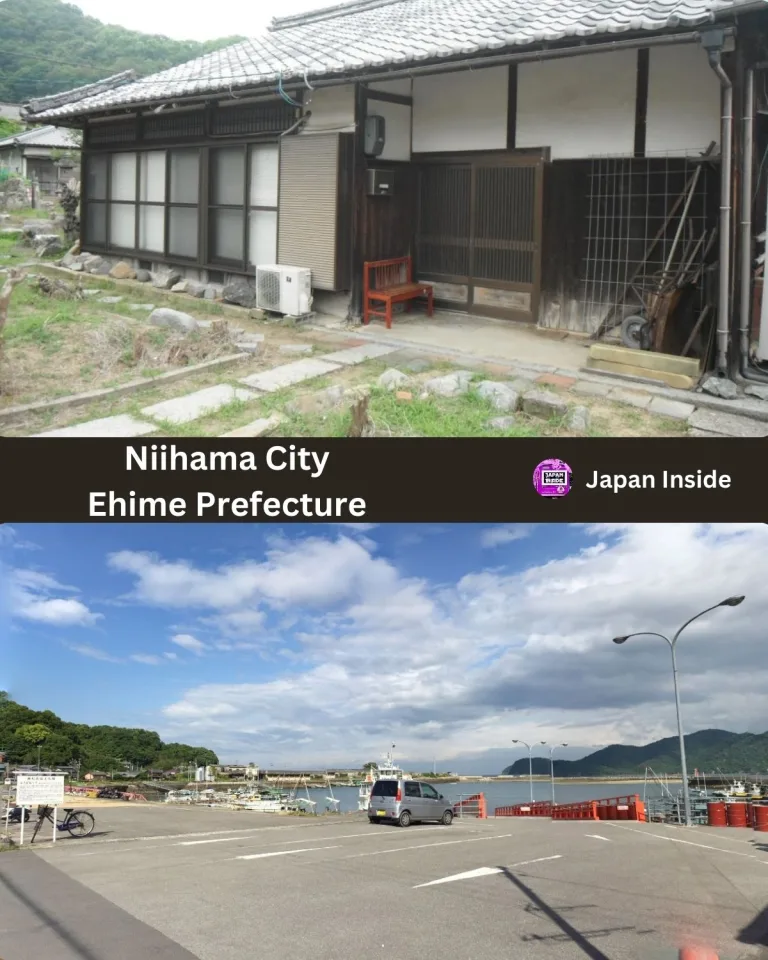She Moved Into An Akiya in The Japan Countryside And Would Not Recommend It For Other Foreigners
Bethany Nakamura, a 35-year-old former interior designer from the United States, made a significant life change in 2021 by moving to Japan to teach English. Seeking to escape the competitive and high-pressure American corporate lifestyle, she fulfilled a childhood dream of living in Japan.

In 2022, she acquired a free abandoned house on Shikoku, the smallest of Japan’s four main islands. The house, dating from the Shōwa era (1926-1989), was a traditional Japanese home with tatami-mat flooring, unique pressed glass windows, and a nostalgic retro feel.
The main level spanned 1,000 square feet, with an additional 250 square feet on the second level.
Check Out These Akiya Deals:
Nakamura quickly learned that homeownership in Japan differs dramatically from the United States. Unlike in America, where houses typically appreciate in value, Japanese houses depreciate. She discovered that the countryside was experiencing significant depopulation, with many vacant houses (also known as akiyas) available.
Initially excited about renovating the house, Nakamura realized the property was already in excellent condition and didn’t need major changes.
She came to appreciate the cultural nuances of Japanese living spaces and community expectations, noting that self-promotion and individual financial gain are often viewed negatively in rural Japanese communities.
After living in the house for a period, Nakamura decided not to purchase it. She advises other foreigners against immediately buying property in the Japanese countryside, emphasizing the need to understand the culture and community thoroughly before making such a commitment.
Recently, Nakamura moved to another vacant house with her husband, continuing her journey of adapting to life in rural Japan. Her experience highlights the complexities of cross-cultural living and the unique approach to homeownership in Japan.
Downsides of Japan Rural Living
Moving to rural Japan presents significant challenges that many foreigners don’t anticipate. Residents in these areas are required to participate in weekly neighborhood meetings and take turns with community cleanup duties, which can be a substantial time commitment.
These social obligations aren’t optional – they’re an expected part of being a community member. Infrastructure poses another challenge, as rural areas often have limited access to medical facilities, and when plumbing or other household issues arise, finding prompt professional help can be difficult.
The conservative social environment of rural Japan can make integration particularly challenging for foreigners, and even basic services require following specific protocols and formal request procedures.
Like many rural areas globally, job opportunities are limited, which explains why many Japanese nationals themselves are relocating to urban centers. Those who move there often find themselves isolated not just by distance, but by language barriers and cultural differences that make even routine tasks more complex to navigate.
Source: Business Insider



In other words, you get what you paid for.
I have a house in rural Japan and love it! It’s in a Beso, a holiday/retirement community without any of the community responsibilities and friendly neighbours who have moved there from the cities.
I don’t understand this woman says she doesn’t recommend it and then… “Recently, Nakamura moved to another vacant house with her husband, continuing her journey of adapting to life in rural Japan.”
She had such a bad experience that she did it again?!
Also she’s surprised that houses depreciate in Japan. But the house that she got for free can hardly depreciate, can it?
Jim, where do you live?
I’m
No quick fix and no free lunch. Western individualism and priviledge are the salient parts of this article. First she acquired a free akiya, and was surprised or sounded offended that there might be a community asoect. ‘No, you cannot just do what you want when you please entering into a neighbourhood, country as a foreigner’. Japan is unique in it’s adherence to thinking about others not just oneself…maybe a little study beforehand is in order before embarking on a new life in a foreign land. And then there is patience…